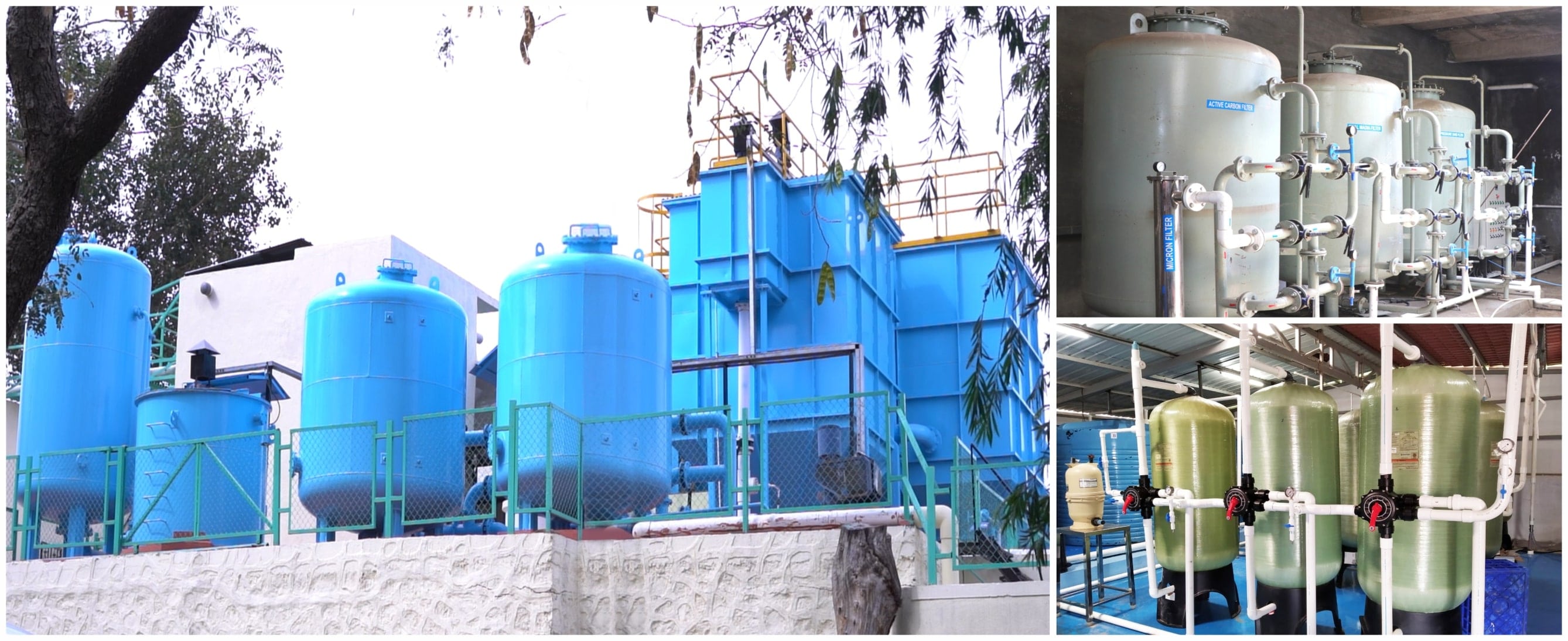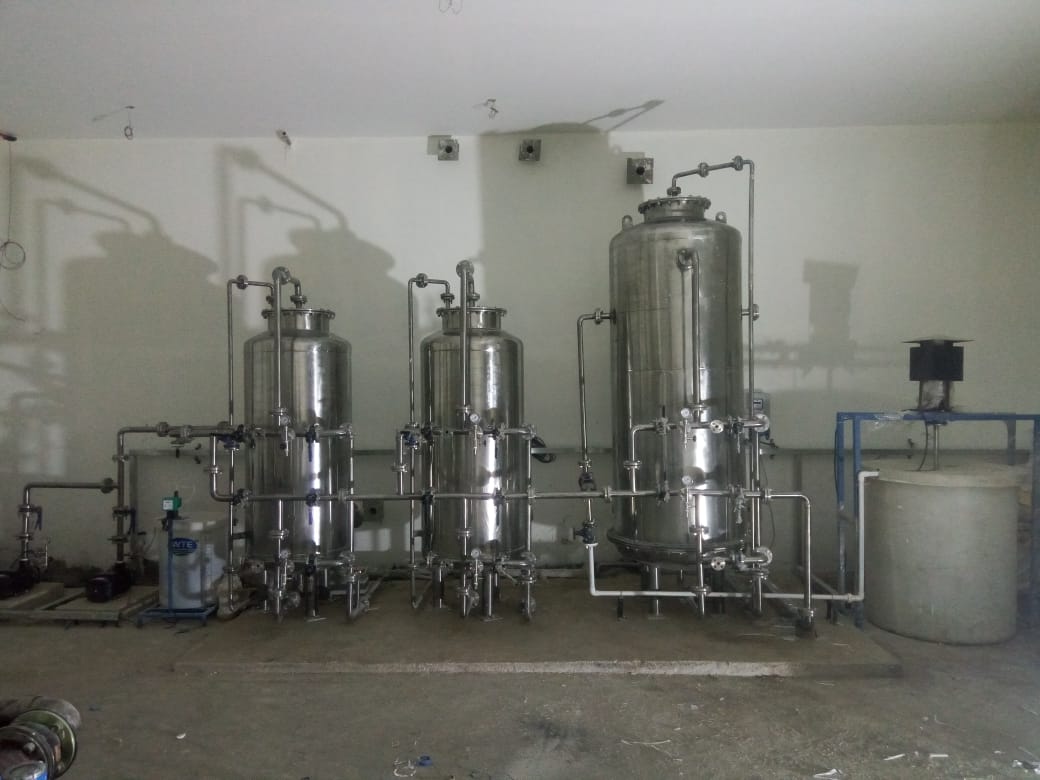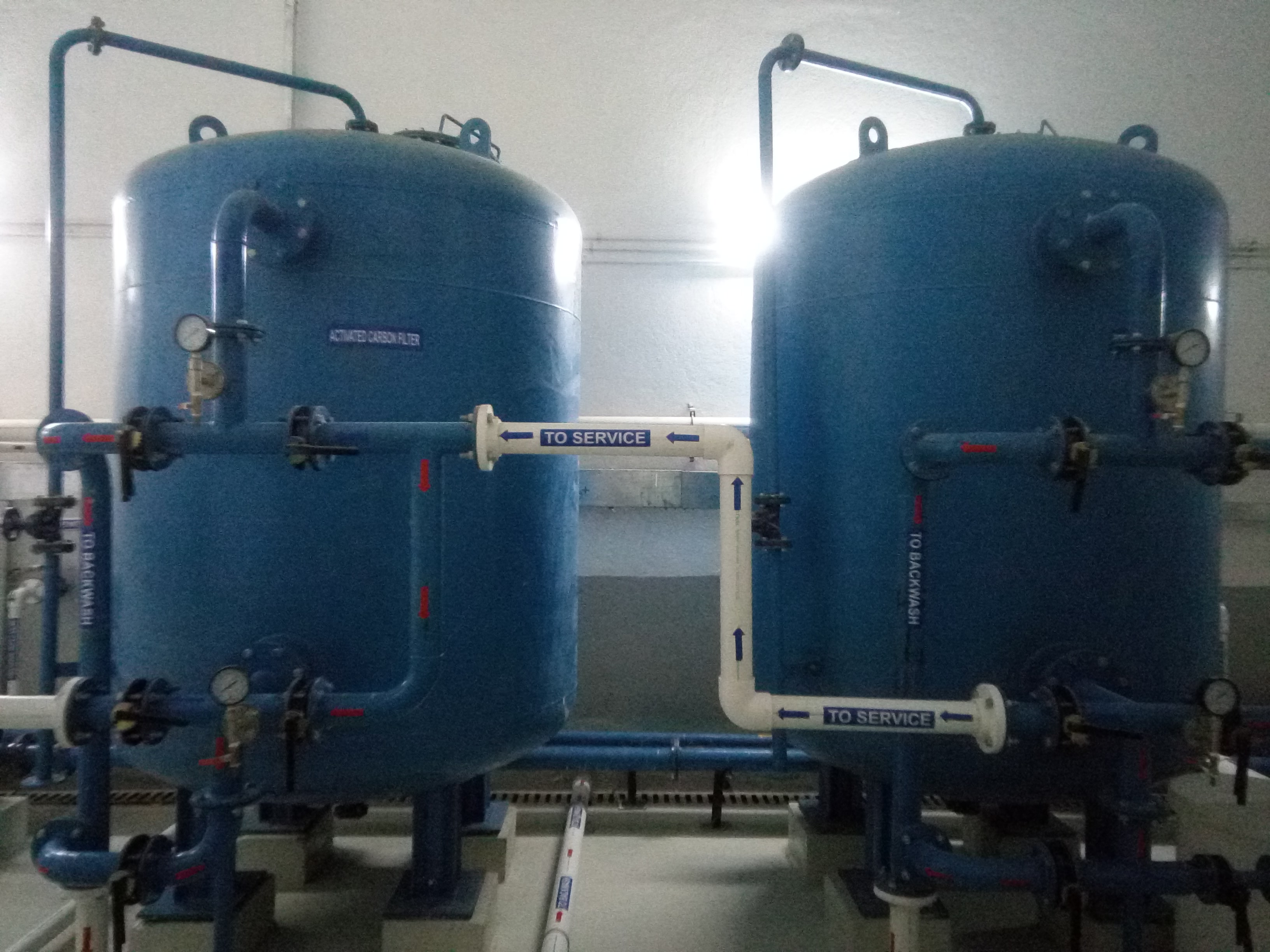Frequently Asked Question
A water softener plant is a system that is used to remove hard water minerals such as calcium and magnesium, which can cause hardness in water. Hard water can cause a variety of problems, including build-up of mineral deposits on pipes and appliances, reduced effectiveness of soaps and detergents, and discoloration of clothes. A water softener plant uses ion exchange to remove hard water minerals and replace them with softer minerals, such as sodium.
A water softener plant typically consists of a mineral tank and a brine tank. The mineral tank contains a bed of resin beads, which are coated with sodium ions. As hard water flows through the mineral tank, the calcium and magnesium ions in the water exchange places with the sodium ions on the resin beads. This effectively removes the hard water minerals from the water and replaces them with softer minerals. The brine tank contains a concentrated solution of sodium chloride (salt) which is used to regenerate the resin beads when they become saturated with hard water minerals.
Water softener plants have several advantages, including:
• Improved water quality: Water softener removes hard water minerals, which can cause a variety of problems such as scaling, discoloration, and reduced effectiveness of soaps and detergents.
• Longer lifespan of appliances: Hard water can cause build-up of mineral deposits on pipes and appliances, which can shorten their lifespan. Softened water can help to extend the lifespan of appliances by preventing build-up of mineral deposits.
• Cost-effective: A water softener can be a cost-effective solution for hard water problems, as it can help to reduce the need for costly repairs and replacements of appliances.
• Better lathering of soap: Soft water lathers better with soap, resulting in more bubbles and less soap consumption.
The main disadvantage of a water softener plant is the cost of operation. It requires salt to regenerate the resin beads, which can be costly. Additionally, the process generates a large amount of brine waste, which can also be expensive to dispose of.
Water softener plants are commonly used in a variety of residential, commercial and industrial applications, including:
• Homes: to improve the quality of water for drinking and household use.
• Industries: to improve the effectiveness of cleaning agents, reduce scaling and extend the lifespan of equipment.
• Power Plants: to prevent scaling in boilers and heat exchangers
• Laboratories: to prevent scaling in glassware and equipment
The resin beads typically last for several years, depending on the level of use and water quality. However, regular maintenance is necessary to ensure the longevity of the resin beads.
Water softener plants are designed to remove specific ions such as calcium and magnesium, and not to remove dissolved solids. High TDS water may require additional treatment before being passed through a water softener. It is best to consult a water treatment expert to determine the best course of action for high TDS water.
Yes, there are alternative methods to soften water, such as:
• Reverse osmosis (RO): Which uses a semi-permeable membrane to remove dissolved ions and molecules, including calcium and magnesium.
• Electrodeionization (EDI): Which uses an ion-exchange resin and an electrical current to remove ions and dissolved solids from water.
• Chelating agents: Which are chemicals that bind to and remove specific ions, such as calcium and magnesium, from water.
• Magnetic water treatment: Which uses a magnetic field to alter the crystal structure of hard water minerals, making them less likely to form scale on surfaces.
• Descaling: Which uses acidic solutions or high-pressure water jets to remove scale buildup from surfaces.
It is important to note that these alternative methods may not be as effective as water softeners for certain applications, and it's recommended to consult a water treatment expert to determine the best course of action for your specific needs.



.jpg)
.jpg)
.jpeg)